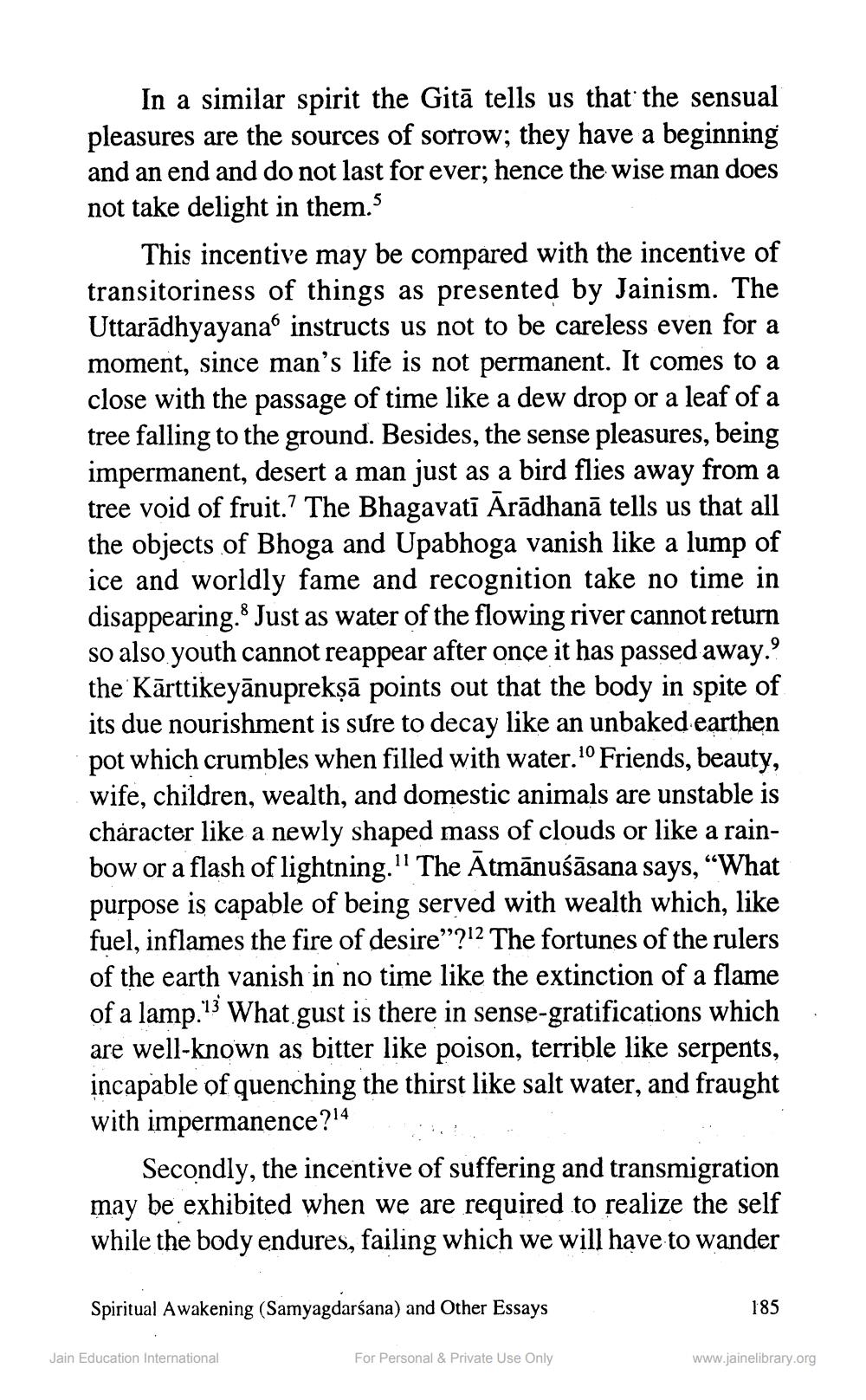________________
In a similar spirit the Gitā tells us that the sensual pleasures are the sources of sorrow; they have a beginning and an end and do not last for ever; hence the wise man does not take delight in them.
This incentive may be compared with the incentive of transitoriness of things as presented by Jainism. The Uttarādhyayana instructs us not to be careless even for a moment, since man's life is not permanent. It comes to a close with the passage of time like a dew drop or a leaf of a tree falling to the ground. Besides, the sense pleasures, being impermanent, desert a man just as a bird flies away from a tree void of fruit.? The Bhagavatī Ārādhanā tells us that all the objects of Bhoga and Upabhoga vanish like a lump of ice and worldly fame and recognition take no time in disappearing. Just as water of the flowing river cannot return so also youth cannot reappear after once it has passed away.? the Kārttikeyānuprekşā points out that the body in spite of its due nourishment is sure to decay like an unbaked earthen pot which crumbles when filled with water.'' Friends, beauty, wife, children, wealth, and domestic animals are unstable is character like a newly shaped mass of clouds or like a rainbow or a flash of lightning." The Atmānuśāsana says, “What purpose is capable of being served with wealth which, like fuel, inflames the fire of desire”?l? The fortunes of the rulers of the earth vanish in no time like the extinction of a flame of a lamp.1What gust is there in sense-gratifications which are well-known as bitter like poison, terrible like serpents, incapable of quenching the thirst like salt water, and fraught with impermanence?!4
Secondly, the incentive of suffering and transmigration may be exhibited when we are required to realize the self while the body endures, failing which we will have to wander
Spiritual Awakening (Samyagdarśana) and Other Essays
185
Jain Education International
For Personal & Private Use Only
www.jainelibrary.org




